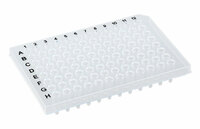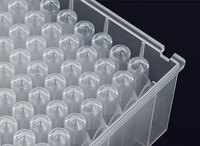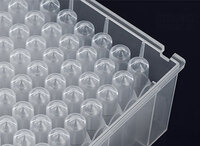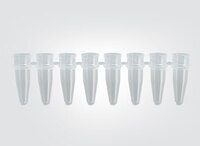Matters Needing Attention in the Use of Serological Pipettes
Specifications
Ⅰ. Understand the serological pipette
In the laboratory, serological pipettes are frequently used to transfer liquids in milliliter volumes, ranging from less than 1 milliliter to as high as 50 milliliters. Pipettes can be sterile,
disposable, plastic, sterilizable, glass and reusable. For example, serological pipettes can be used to precisely layer reactants of different densities, mix chemical solutions or cell suspensions,
transfer liquids between containers, or mix chemical solutions or cell suspensions.
If the level of the liquid being aspirated and dispensed is carefully monitored, a serological pipette can be a useful tool in the laboratory for transferring accurate milliliter volumes of
solution, especially when used with LTS pipette tips, which provide excellent precision.
Ⅱ. What factors will affect the accuracy and precision of the serological pipette?
The precision and accuracy of a serological pipette are affected by many factors. Unless the results are accurate, they are meaningless. The pipette must produce readings close to the nominal or
true volume determined by the volume setting. Precision is defined as the ability to repeat a test and obtain the same result each time. The results of repeated tests must be within a certain
standard deviation, recorded during the test Environmental and fluid changes are critical. The following factors can affect the precision and accuracy of the results.
1. Density. Serological pipette tip aspiration is affected by the bulk density of the liquid (mass/volume ratio), to test this, aspirate a small amount of water with a density greater than water
and an equal volume of water, the results are affected by gravity, dexterity and dead air volume Impact.
2. Temperature. The density of liquids is also affected by temperature, and pipetting accuracy is affected. The temperature difference between the liquid and the delivery device has a big impact on
the results, the dead air volume between the piston and the liquid surface expands, therefore, the liquid volume in the tip changes and ultimately the precision and accuracy of your results suffer.
3. Altitude. The air pressure varies with the geographical altitude, the conversion factor Z decreases as the altitude lowers the air pressure, the boiling point of some liquids can be close to
room temperature at certain altitudes, and the evaporation loss will increase significantly.
Ⅲ. Choose the right serological pipette
To ensure accuracy and precision, choosing the right tool to measure each volume is critical. Always use the right serological pipette from the right serological pipette manufacturer for the job to
reduce errors. A 5mL serological pipette is more accurate than a 10mL pipette when measuring 4.5mL of liquid. If you are working with very small volumes, then a small pipette will suffice.
Therefore, serological pipettes of 2 ml or larger are usually preferred. Its small diameter and precise graduations help reduce errors in judging the meniscus of a sample.
For more information about serological pipette function and serological pipette use , please feel free to contact us!
There are many medical consumables distributors, but we are one of the best choices for you.
- Country: China (Mainland)
- Address: Plant A1, A5, B1 West Unit 1, No. 188, Shengxiang East Road, Qiandeng Town, Kunshan City, Jiangsu Province
- Contact: Alisa Yin










